Papers by Frederick M . Dolan
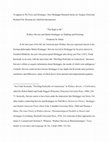
Heidegger in the Literary World: Variations on Poetic Thinking ed. Florian Grosser and Nassima Sahraoui. Rowman & Littlefield, 2021
In the last years of his life, the American poet Wallace Stevens expressed interest in the German... more In the last years of his life, the American poet Wallace Stevens expressed interest in the German philosopher Martin Heidegger. Stevens was led to Heidegger by his prior interest in Friedrich Hölderlin, the poet who preoccu- pied Heidegger after the book Being and Time (1927). Although Stevens’s pursuit of Heidegger went nowhere, I like to think that he was right to wonder whether Heidegger might have something to offer him. Metaphysically speaking, both men belonged to the same epoch. Stevens, like Heidegger, was haunted by the question of how to respond to the moral and spiritual disorders of a world from which the gods had fled (or worse). Heidegger worried about technological “enframing,” in which beings appear as resources continually in the process of being optimised, enhanced and rendered ever more accessible to manipulation – an approach that is also applied to human beings and which obscures our true vocation as “shepherds of Being.” Stevens characterises the modern world in rather different terms – “the great things have been denied and we live in an intricacy of new and local mythologies, political, economic and poetic, which are asserted with an ever-enlarging incoherence” – but he was at one with Heidegger when it came to the “pressure on the consciousness” of a disenchanted technological society that weakens the “power of contemplation.”
The Cabinet of Imaginary Laws ed. Peter Goodrich and Thanos Zartaloudis (Routledge, 2021).
The 21st century, otherwise unremarkable after the Great Climate Change Scare of its early decade... more The 21st century, otherwise unremarkable after the Great Climate Change Scare of its early decades was revealed to be a hoax, is remembered for its solution to an age-old problem.

Philosophy & Social Criticism, 2005
For Hannah Arendt, spontaneous, ‘initiatory’ human action and interaction are suppressed by the n... more For Hannah Arendt, spontaneous, ‘initiatory’ human action and interaction are suppressed by the normalizing pressures of society once ‘life’ – that is, sheer life – becomes the primary concern of politics, as it does, she finds, in the modern age. Arendt’s concept of the social is indebted to Martin Heidegger’s analysis of everyday Dasein in Being and Time, and contemporary political philosophers inspired by Heidegger, such as Jean-Luc Nancy, Philippe Lacoue-Labarthe, and Giorgio Agamben, tend to reproduce her account of the withdrawal of the political in modernity. In this article, I complicate Arendt’s theory by turning to Michel Foucault’s parallel but diverging understanding of the nature of power in modern society to show, surprisingly, that Foucault’s narrative of the emergence of modern power pictures a society that is more, not less, politicized.
The Journal of Politics, 2004
Cardozo Law Review , 2003
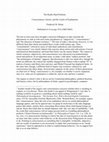
Crossings, 2003
The last several years have brought a renewed willingness to take seriously the phenomena we stab... more The last several years have brought a renewed willingness to take seriously the phenomena we stab at with such terms and phrases as “subjectivity,” “consciousness,” and “the character of human existence.” The tone of today’s discussion, however, is very different from that which surrounded these words a half-century ago. Then, “existentialism” referred to issues of individual authenticity and commitment, “consciousness” was closely linked with concerns about action and with notions of social and historical determination, and Jean-Paul Sartre was the master thinker. The context in which existence, subjectivity, and consciousness were discussed was predominantly moral and political. In an important sense, as today’s talk about “subject position” and “the performance of identity” suggests, that discussion is still very much alive, though the terms are different, the context has changed from History-with-a-capital-“H” to matters of justice and liberty here and now, and Michel Foucault has displaced Sartre. At the same time, though, a different kind of inquiry into existence, subjectivity, and consciousness has taken shape, focused more squarely on the nature of these phenomena: on what sort of “thing” consciousness is, for example, on whether it can be explained, and, if so, what sort of explanation is required, and on why and how it matters.

The Cambridge Companion to Hannah Arendt, 2000
Hannah Arendt disavowed the title of “philosopher,” and is known above all as a political theoris... more Hannah Arendt disavowed the title of “philosopher,” and is known above all as a political theorist. But the relationship between philosophy and politics animates her entire oeuvre. We find her addressing the topic in The Human Condition (1958), in Between Past and Future (a collection of essays written in the early 1960s), and in Men in Dark Times (another collection of essays, this one from the late sixties). It is treated in her Lectures on Kant’s Political Philosophy, composed during the seventies, and also in the posthumous Life of the Mind, two of three projected volumes of which were complete when she died in 1975. Certainly, Arendt’s thought cannot be understood without taking into account her deep suspicion of and equally deep commitment to philosophy in the context of political reflection. For all that, her writings on this abiding preoccupation do not gel into a systematically articulated theory or programmatic statement. Instead, they reflect Arendt’s appreciation of what remained for her a “vital tension” – an enigma.
Political Theory, 1995
JSTOR is a not-for-profit service that helps scholars, researchers, and students discover, use, a... more JSTOR is a not-for-profit service that helps scholars, researchers, and students discover, use, and build upon a wide range of content in a trusted digital archive. We use information technology and tools to increase productivity and facilitate new forms of scholarship. For more information about JSTOR, please contact support@jstor.org.
Contemporary Literature, 1991
JSTOR is a not-for-profit service that helps scholars, researchers, and students discover, use, a... more JSTOR is a not-for-profit service that helps scholars, researchers, and students discover, use, and build upon a wide range of content in a trusted digital archive. We use information technology and tools to increase productivity and facilitate new forms of scholarship. For more information about JSTOR, please contact support@jstor.org.
The Massachusetts Review, 1991
JSTOR is a not-for-profit service that helps scholars, researchers, and students discover, use, a... more JSTOR is a not-for-profit service that helps scholars, researchers, and students discover, use, and build upon a wide range of content in a trusted digital archive. We use information technology and tools to increase productivity and facilitate new forms of scholarship. For more information about JSTOR, please contact support@jstor.org.
Postmodern Culture, 1991
At first glance, the debate in Congress and the media appears to be an argument over the appropri... more At first glance, the debate in Congress and the media appears to be an argument over the appropriate allegorical reading of the Gulf crisis, with the Bush administration insisting on the pretext of World War II and the lessons of Munich, and its critics favoring the script of Vietnam. In the issue ofThe New York Times that featured the report on widespread public awareness of the discrepancy between political sign and political meaning, an editorial
Text and Performance Quarterly, 1991
Diacritics, 1990
JSTOR is a not-for-profit service that helps scholars, researchers, and students discover, use, a... more JSTOR is a not-for-profit service that helps scholars, researchers, and students discover, use, and build upon a wide range of content in a trusted digital archive. We use information technology and tools to increase productivity and facilitate new forms of scholarship. For more information about JSTOR, please contact support@jstor.org.
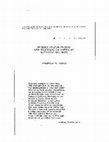
Canadian Journal of Political and Social Theory / Revue canadienne de théorie politique et sociale, 1988
HOBBES AND / OR NORTH : THE RHETOR I C OF AMER I CAN NAT I ONAL SECUR I TY F rede r i ck M. Do l ... more HOBBES AND / OR NORTH : THE RHETOR I C OF AMER I CAN NAT I ONAL SECUR I TY F rede r i ck M. Do l an _ i1 hus Sa t an , t a l k i ng t o h i s nea res t ma t e , W i t h head up l i f t above t he wave and eyes Tha t spa rk l i ng b l azed ; h i s o t he r par t s bes i des Prone on t he f l ood , ex t ended l ong and l arge , Lay f l oa t i ng may a rood , i n bu l k as huge As whom t he f ab l es name o f mons t rous s i ze , T i t an i an or Ea r t h-born , tha t wa r r ed on Jove , Br i a reos or Typhon , whom t he den By anc i en t Ta rsus he l d , or tha t sea -beas t Lev i a t han , wh i ch God o f a l l h i s wor ks Cr ea t ed huges t tha t sw i m t he ocean-s t r eam . H i m , hap l y s l umbe r i ng on t he No rway f oam , The p i l ot o f some sma l l n i gh t -f ounde r ed sk i f f Deem i ng some i s l and , of t , as seamen te l l , W i t h f i xed anchor i n h i s sca l y r i nd , Moo r s by h i s s i de unde r t he l ee , wh i l e n i ght Inves t s t he sea , and w i shed mo r n de l ays .
New Orleans Review, 1986
Alasdair MacIntyre's attack on the foundations of liberalism culminates in a stark choice between... more Alasdair MacIntyre's attack on the foundations of liberalism culminates in a stark choice between Nietzsche and Aristotle – a choice that is both unavoidable and absolute, because the liberal tradition, on MacIntyre's account, necessarily leads to Nietzsche, while to undertake a fundamental criticism of Nietzsche leads inexorably to the search for a standpoint outside liberalism – to the Aristotelian "tradition" of the virtues, he argues. I suggest reading Nietzsche in a way that places him within rather than in opposition to MacIntyr'es Aristotelian tradition, but the point is not merely to debate the interpretation of Nietzsche. Nietzsche not only has an "Aristotelian" theory of the subject, but an account that specifies the political dimension of any such theory, which is in danger of being obscured in MacIntyre's presentation.
Drafts by Frederick M . Dolan
In 1997, UC Berkeley philosopher Hubert Dreyfus offered an assessment of the World Wide Web that,... more In 1997, UC Berkeley philosopher Hubert Dreyfus offered an assessment of the World Wide Web that, in retrospect, predicted with virtually 100 percent accuracy our socially networked democracy’s current predicament. Remarkably, he did this by applying to the Web as it was then an analysis of “the Press” and “the Public” worked out by Søren Kierkegaard in a pamphlet called The Present Age (1846).
The thinking of Covid-19 does not presume to offer medical advice, still less to pronounce on the... more The thinking of Covid-19 does not presume to offer medical advice, still less to pronounce on the strife between freedom and social distancing. This venture in thought does not view the quarantine as a mere means to slow the spread of the virus; rather it seeks to understand the unconcealing of quarantining from out of the virusing of the Virus. We ask:
What is it to quarantine?
How does Covid-19 belong to quarantining?
It's a curious fact that we don't understand art. We don't know what art is. Some might say that ... more It's a curious fact that we don't understand art. We don't know what art is. Some might say that doesn't much matter because there are far more important things we don't understand. For example, we don't understand politics, where much more is at stake. Indeed, we should probably say that we don't understand the social and historical world we share at all, in a sufficiently strict sense of "understanding." The frailty of human understanding concerning the world of human affairs is an ontological feature of that world. So the fact that we don't understand art is perhaps not so curious after all.
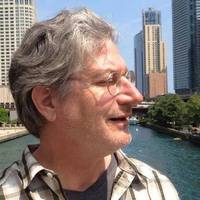

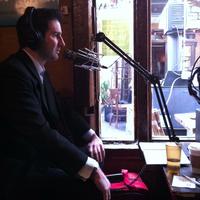

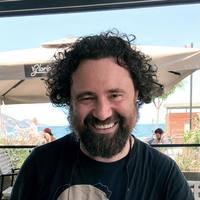
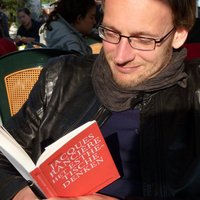
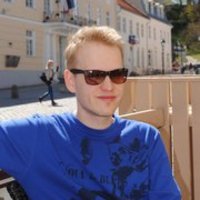
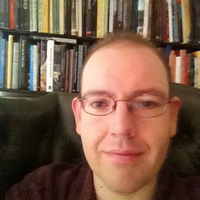
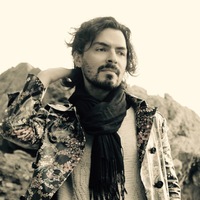
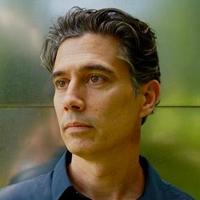
Uploads
Papers by Frederick M . Dolan
Drafts by Frederick M . Dolan
What is it to quarantine?
How does Covid-19 belong to quarantining?
What is it to quarantine?
How does Covid-19 belong to quarantining?
enced as preventing understanding. Rogin and Tulis show that the close reading of written and oral texts may be more important than regression analyses to the comprehension of postmodern politics. But they show more than that. Rhetorical studies inspired by such figures as Jacques Derrida and Paul de Man often seem weak when addressed to politics, in part, I think, because such readers often pay insufficient attention to the distinctive features of political inquiry. Rogin and Tulis demonstrate the virtues of readers versed in politics and rhetoric, and their books remind us that the interpretation of postmodern political discourse demands both.
In this course, we’ll analyze and evaluate theories of the meaning of life. We’ll encounter a variety of fascinating themes: What are we asking when we ask “What is the meaning of life?” – what sort of question is it and what sorts of replies count as plausible candidates for an answer? Is there a meaning of life? (Maybe life is pointless, absurd, or evil.) How should we think about living with death? What can usefully be said about how best to live or what makes life worth living?
Most of the authors we’ll discuss are philosophers: Arthur Schopenhauer, Albert Camus, Derek Parfit, David Wiggins, Thomas Nagel, Susan Wolf, Shelly Kagan. We’ll look especially closely at how two iconic 19th century thinkers – Søren Kierkegaard and Friedrich Nietzsche – approach the question. In addition to philosophers, we’ll also consult psychologists, poets, and filmmakers.
This course won’t provide any easy answers to the question of the meaning of life. But it will provide an opportunity to learn your way around the neighborhood of the question and improve your ability to ask and answer it for yourself.
In this course, we will analyze and evaluate the counter-enlightenment political philosophy invoked by America’s most radical political groups, exploring the possible limits of liberalism and asking whether our current frameworks of political thought have the resources necessary to articulate a meaningful and moderating response.
In this course, we’ll analyze and evaluate theories of the meaning of life. Although this might seem like a vague or frivolous topic, it’s actually one of the most important. People have wondered about it ever since we began to think seriously, and a great many approaches to the problem have been developed. We’ll encounter a variety of fascinating themes:
• What do we mean when we ask “What is the meaning of life?” What sort of question is it, and what sorts of replies count as plausible candidates for an answer?
• Is there a meaning of life? Maybe life is pointless, absurd, or evil.
• What is the significance of mortality? How should we think about living with death?
• What can usefully be said about how best to live or what makes life worth living?
• Why is there something rather than nothing? And given that there is something, why is it as it is, given that it might have been otherwise? Why anything? Why this?
Most of the authors we’ll read are philosophers (Søren Kierkegaard, Friedrich Nietzsche, Thomas Nagel, and Susan Wolf, among others), and we’ll use the philosophical method to study our topic: breaking the problem down into its elementary parts, carefully defining terms and concepts, and evaluating the validity of arguments and evidence for and against the various claims on offer. In addition to philosophers, however, we’ll also consult a psychologist (Jonathan Haidt), a couple of poets (Wallace Stevens, Philip Larkin), some painters and sculptors (Böcklin, Michelangelo, Rodin), a composer or two (Rachmaninoff and perhaps R. Strauss, Wagner, or Berlioz), and three films (Alain Resnais and Marguerite Duras’s Hiroshima mon amour, Carol Reed’s The Third Man, and Jean-Luc Godard’s Breathless).
This course won’t provide you with any easy answers to the question of the meaning of life. But it will enable you to learn your way around the neighborhood of the question and improve your ability to ask and answer it for yourself.
In this course, we’ll analyze and evaluate theories of the meaning of life. Although this might seem like a vague or frivolous topic, it’s actually one of the most important. People have wondered about it ever since we began to think seriously, and a great many approaches to the problem have been developed. We’ll encounter a variety of fascinating themes:
• What do we mean when we ask “What is the meaning of life?” What sort of question is it, and what sorts of replies count as plausible candidates for an answer?
• Is there a meaning of life? Maybe life is pointless, absurd, or evil.
• What is the significance of mortality? How should we think about living with death?
• What can usefully be said about how best to live or what makes life worth living?
• Why is there something rather than nothing? And given that there is something, why is it as it is, given that it might have been otherwise? Why anything? Why this?
Most of the authors we’ll read are philosophers (Søren Kierkegaard, Friedrich Nietzsche, Thomas Nagel, and Susan Wolf, among others), and we’ll use the philosophical method to study our topic: breaking the problem down into its elementary parts, carefully defining terms and concepts, and evaluating the validity of arguments and evidence for and against the various claims on offer. In addition to philosophers, however, we’ll also consult a psychologist (Jonathan Haidt), a couple of poets (Wallace Stevens, Philip Larkin), some painters and sculptors (Böcklin, Michelangelo, Rodin), a composer or two (Rachmaninoff and perhaps R. Strauss, Wagner, or Berlioz), and three films (Alain Resnais and Marguerite Duras’s Hiroshima mon amour, Carol Reed’s The Third Man, and Jean-Luc Godard’s Breathless).
This course won’t provide you with any easy answers to the question of the meaning of life. But it will enable you to learn your way around the neighborhood of the question and improve your ability to ask and answer it for yourself.